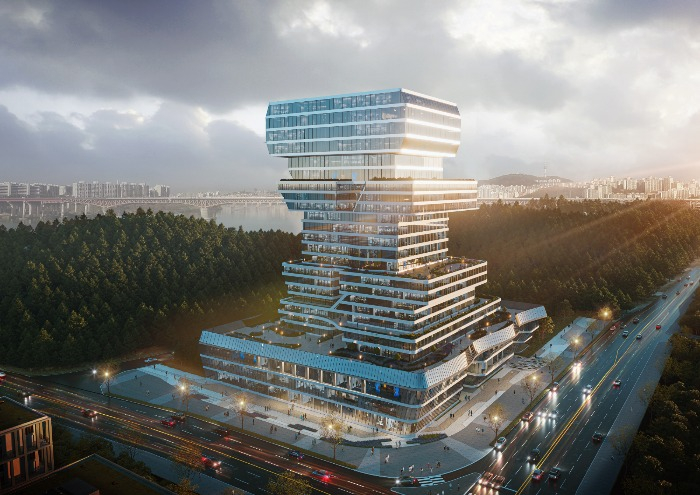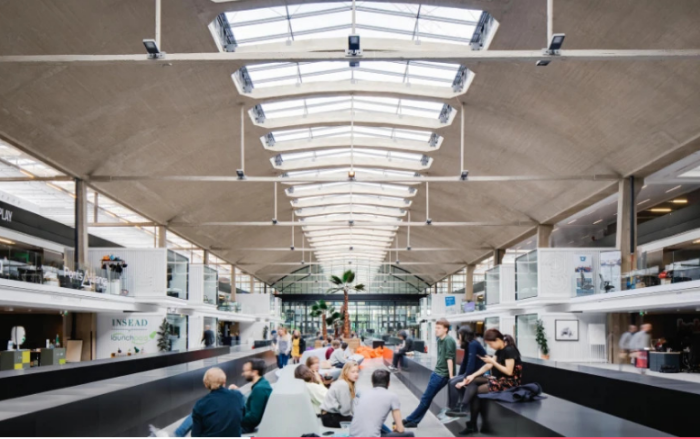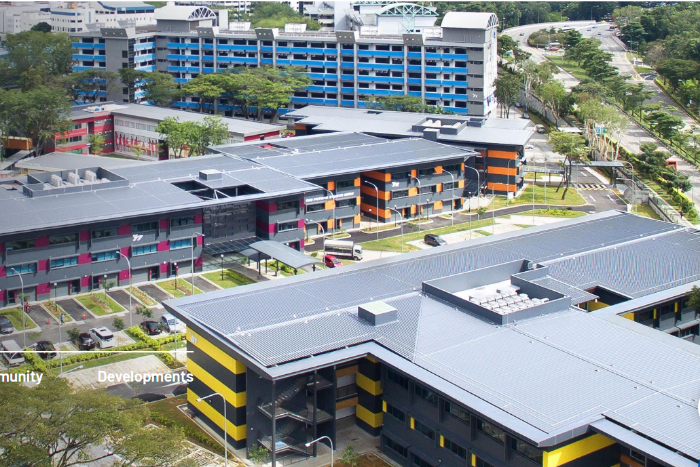Seoul to build world's largest startup campus by 2030
The city government will inject $1.3 mn into the Seoul Startup Policy 2030 project
By Jun 21, 2023 (Gmt+09:00)
Alibaba eyes 1st investment in Korean e-commerce platform


Blackstone signs over $1 bn deal with MBK for 1st exit in Korea


OCI to invest up to $1.5 bn in MalaysiaŌĆÖs polysilicon plant


Korea's Lotte Insurance put on market for around $1.5 bn


NPS loses $1.2 bn in local stocks in Q1 on weak battery shares



The Seoul Metropolitan Government will establish the worldŌĆÖs largest startup campus in the capital city of South Korea by 2030, benchmarking Station F in Paris and SingaporeŌĆÖs LaunchPad, Seoul Mayor Oh Se-hoon said on Wednesday.
The startup facility, dubbed the Seoul Unicorn Startup Hub, will be located in Seongsu-dong, a trendy neighborhood with warehouse cafes and hip independent shops renovated from old factories.
Under the Seoul Startup Policy 2030, the city government will inject a total of 1.67 trillion won ($1.3 million) into the project to build the campus and invest in small enterprises.
It aims to produce 60 global unicorns, or private companies with a corporate value of 1 trillion won or more under the project, Oh said in a press conference.
Once the facility is completed by 2030, the total floor space dedicated to startups in the city will increase to 370,000 square meters from the current 150,000 square meters.
That means Seoul will be able to offer workspaces, including shared offices, to 3,277 startups, nearly triple the current 1,130 accommodated.

The city government kicked off the Seoul Startup Policy 2030 back in 2009 during OhŌĆÖs first term as mayor. The initiative has resulted in increasing the number of startup support facilities to 30 in Seoul, from 17 in 2011.
Under the project, 14,000 startups have received policy support, creating 23,000 jobs and raising 1.5 trillion won in funds over the past 11 years. They generated 5.7 trillion won in aggregate sales during the same period.
To renew the project, Seoul will launch a 100 billion won fund for startups to be based in the Seoul Unicorn Startup Hub.
The facility, measuring 100,000 square meters, will become the worldŌĆÖs biggest startup campus, enough to house about 1,000 startups. Currently, Station F in Paris is the worldŌĆÖs largest of its kind.
It will be constructed on the parking spot of Seoul Forest. Like Station F in Paris and SingaporeŌĆÖs LaunchPad, the Seoul Unicorn Startup Hub will incubate and grow early-stage to pre-unicorn startups in cooperation with companies and investment firms.

OVERSEAS EXPANSION
Seoul will also support startupsŌĆÖ overseas expansion by opening global offices, which can serve as their regional hubs in 20 countries, including Spain and Singapore.
To facilitate startups' fundraising, it will launch a public-private investment network forum from next year in Seoul's Teheran-ro, colloquially known as Teheran Valley, home to 84% of the startup investment companies in the country.
Regarding other growth industries such as robotics, fintech, biotech and artificial intelligence, Seoul will build separate business clusters and form investment funds for their respective sectors within the city.
For robotics startups, Seoul will launch a 200 billion won fund by 2026 and build a robot industry cluster in Suseo, southern Seoul to nurture 1,500 robotics talent by 2030.
For biotech ventures, it will create a 1.6 trillion won fund by 2030.
Seoul is aiming to join the ranks of the top five global cities by establishing a global startup ecosystem, creating jobs through public-private partnerships and ensuring balanced neighborhood development.
Write to Ji-Eun Jeong at jeong@hankyung.com
Yeonhee Kim edited this article.
-
 BatteriesLG Energy selects 10 promising global startups in battery area
BatteriesLG Energy selects 10 promising global startups in battery areaJun 20, 2023 (Gmt+09:00)
1 Min read -

-
 Beauty & CosmeticsS.Korean gov't, L'Or├®al to jointly support beauty tech startups
Beauty & CosmeticsS.Korean gov't, L'Or├®al to jointly support beauty tech startupsJun 16, 2023 (Gmt+09:00)
1 Min read -
 Korean startupsGenerative AI startup Wrtn attracts nearly $12 mn in investment
Korean startupsGenerative AI startup Wrtn attracts nearly $12 mn in investmentJun 16, 2023 (Gmt+09:00)
1 Min read -
 Korean SMEsS.Korea bets on 2nd Middle East boom for SMEs, startups
Korean SMEsS.Korea bets on 2nd Middle East boom for SMEs, startupsJun 15, 2023 (Gmt+09:00)
2 Min read -
 Korean startupsHyundai invests $781 mn in startups to drive future innovation growth
Korean startupsHyundai invests $781 mn in startups to drive future innovation growthJun 15, 2023 (Gmt+09:00)
1 Min read -
 Artificial intelligenceOpenAIŌĆÖs Sam Altman seeks help from Korean startups, chipmakers
Artificial intelligenceOpenAIŌĆÖs Sam Altman seeks help from Korean startups, chipmakersJun 09, 2023 (Gmt+09:00)
3 Min read -
 Korean startupsKorean startups opt for Konex, loans for survival during IPO winter
Korean startupsKorean startups opt for Konex, loans for survival during IPO winterJun 02, 2023 (Gmt+09:00)
4 Min read


